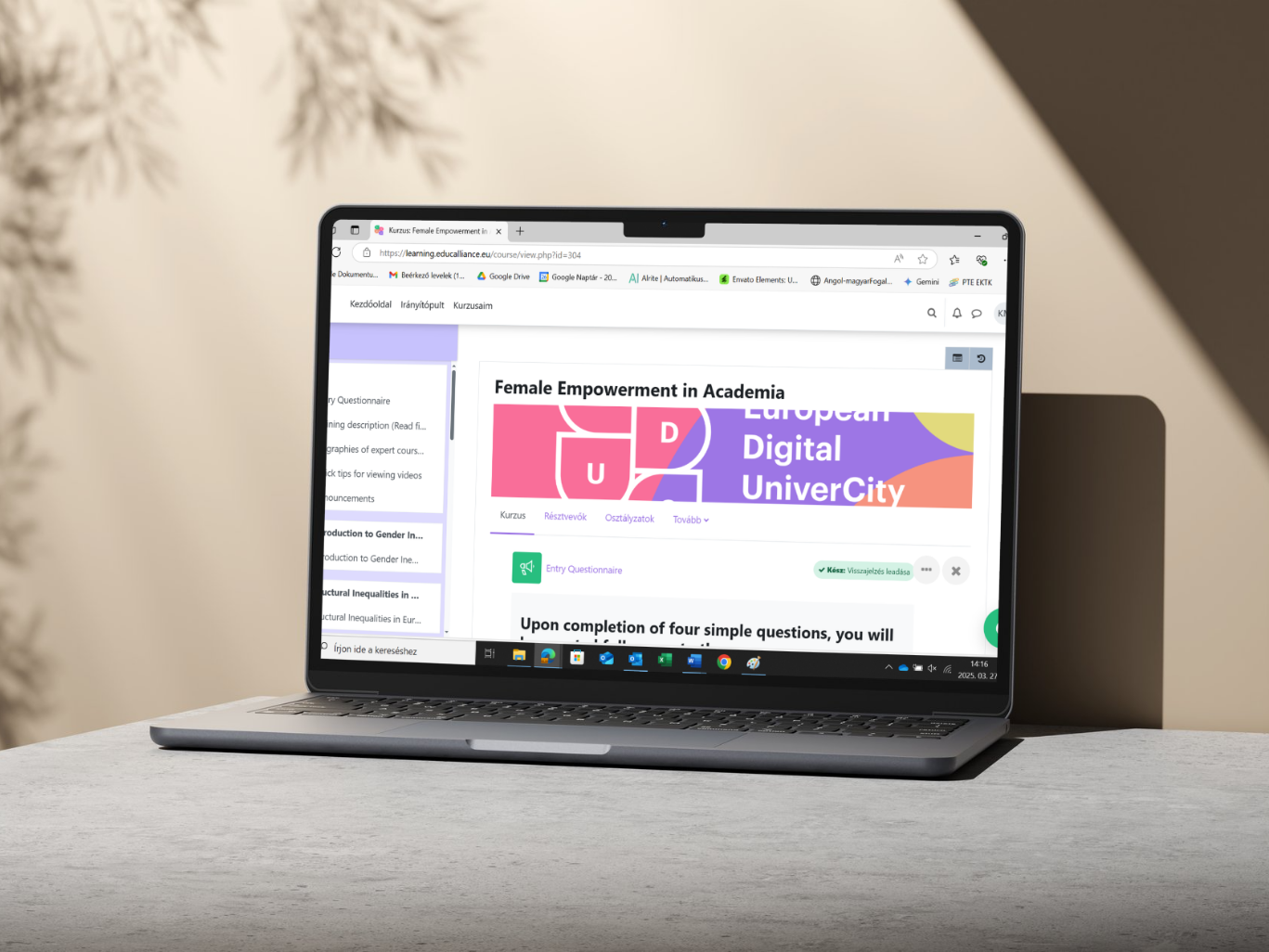
"99 years. 99. Almost a 100. We are still about 100 years away from closing the gender gap in the workplace. Scary! Are we sure this is the 21st century?! Are we, women, still oppressed? What is going on? Why aren’t we valued?" These were the thoughts I had during a lecture I attended in my university years, as I listened to one of our guest speakers share the story of her fascinating life and incredible work on gender equality. I will never forget that lecture because it was the moment when this topic started to interest me on a deeper level. This is why I completed EDUC’s Female Empowerment in Academia course.
A Role Model
The guest speaker I mentioned was none other than Edina Heal. She held leadership positions at such megacorporations as Polygram Entertainment, EMI Records (both are British multinational record labels owned by Universal Music Group), and Google. Forbes Magazine has selected her as one of the five most influential women in the business category in Hungary. And most importantly, she is the founder and CEO of the Equaliser Foundation. "We believe that building a career, being a leader, is our universal ability independent from our gender. Our aim is that all of us – men or women – can bring a decision about our professional path regardless of our gender,” you can read in their mission statement on their website."Yes! This is for me! Love when people support each other regardless of their gender,” was my first reaction when I read it. Needless to say, I was very impressed with the foundation’s work and immediately joined their mentorship program.

Why I Took the EDUC Course
This experience made me take the course offered by EDUC. I feel very much at home with this topic and I was interested to see how different the situation of women is in academia. I wanted to deepen my understanding and contribute to change somehow. The academic world is seemingly an arena of knowledge and merit, but a closer look at the statistics reveals a stubborn inequality: the significant under-representation of women, especially in higher positions. Although women are now the majority in many university student bodies, professorships and management positions are still dominated by men. Why is this, and what factors contribute to the persistence of "invisible barriers"?
EDUC’s Female Empowerment in Academia course provided a structured approach to tackling inequality, covering key topics such as gender inequality (structural barriers, glass ceiling, leaky pipeline, and work-life balance challenges), gender-based violence in the workplace and raising awareness through innovative tools, gender methodologies aka how to integrate feminist and intersectional approaches into research, policies, and everyday professional life.
Reviewing the course material, I smiled. "All female presenters, not a single male. Interesting!" I thought. For me, one of the greatest values of the course was that it was taught by authentic and inspiring female lecturers. I particularly enjoyed the presentations, which were extremely informative and thought-provoking. I also appreciated the fact that I had access to the lecture materials so that I could refer back to the lectures later. And the certificate I received at the end of the course is not only a recognition but also a reminder of how important this subject is.

Representation Matters
Although some progress has been made in recent years, the under-representation of women in academia remains a real and pressing problem. The role of universities and research institutes is key to dismantling structures that prevent women from progressing in their careers. Breaking the glass ceiling is vital not only for women's individual careers but also for the academic community as a whole: a more diverse and equitable academic world would benefit everyone. The road ahead is long, but education and awareness are powerful catalysts for progress. We all have a role to play in achieving gender equality.
The Female Empowerment in Academia course is a comprehensive, well-structured programme that provides valuable knowledge for all women (and men!) working in academia. If you are interested in gender equality and want to get effective tools to address the challenges of the academic world, this course is definitely worth taking!
Authored by Mercédesz Kovács-Csincsák (University of Pécs), reflecting on her experience in the "Female Empowerment in Academia" course.